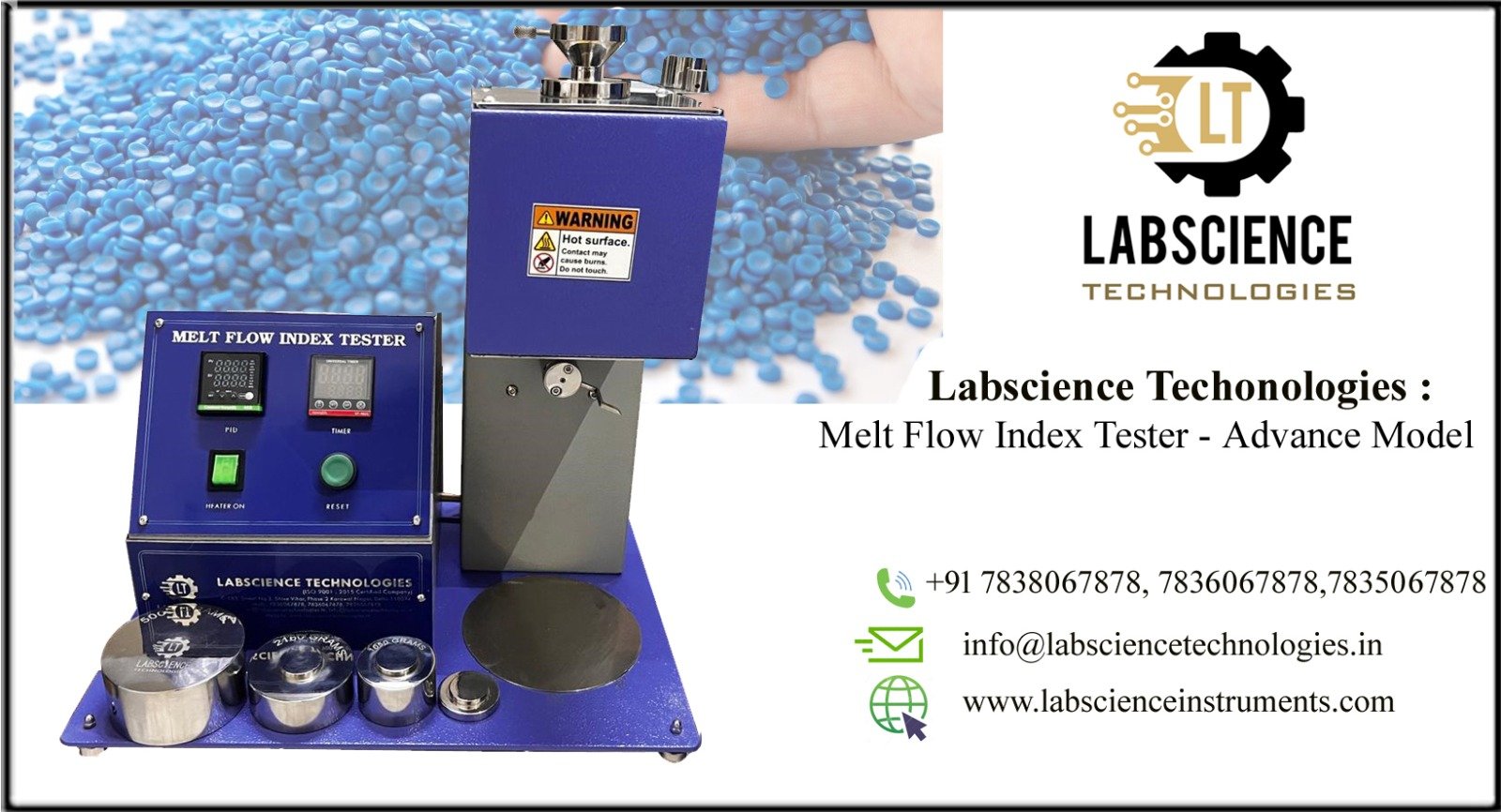Description
The Melt Flow Rate (MFR) test is a critical method used to measure the flow properties of thermoplastic polymers in a molten state. This test helps determine the viscosity and flowability of a plastic material by calculating the amount of material that flows through a specific die under controlled temperature and pressure. The melt flow rate test is performed according to standardized methods such as ASTM D1238 or ISO 1133, ensuring accuracy and consistency.
This test is widely used in the plastics industry to assess the quality and processability of materials, including polyethylene, polypropylene, and other thermoplastics. The MFR value is a key indicator of how a material will behave during manufacturing processes like injection molding or extrusion. A higher melt flow rate indicates lower viscosity and faster flow, while a lower MFR suggests higher viscosity and slower flow.
Manufacturers rely on the melt flow rate test to ensure the uniformity and quality of their plastic products. It also plays a vital role in product development, helping to choose the right material for specific applications. The test is simple yet provides essential data for quality control and material characterization in the polymer industry.
Features
The Melt Flow Rate (MFR) test offers essential features for assessing the flow characteristics of thermoplastic materials. This test determines the rate at which molten plastic flows through a die under specific conditions of temperature and pressure, giving a precise measure of material viscosity and flowability.
One of the key features of the melt flow rate test is its ability to provide a quantitative measurement of polymer properties in a simple and standardized manner, often following ASTM D1238 or ISO 1133 guidelines. It allows manufacturers to easily compare different grades of plastic materials based on their flow rate.
Another important feature is its versatility. The melt flow rate test can be applied to a wide range of thermoplastic polymers, including polyethylene, polypropylene, ABS, and more. This makes it a valuable tool for quality control across diverse applications in the plastic industry.
The test also provides insights into how the material will behave during processing methods like injection molding or extrusion. For example, a higher MFR value indicates that the material has lower viscosity and flows more easily, while a lower value suggests higher viscosity and slower flow.
Overall, the melt flow rate test is a highly reliable and essential feature in polymer testing, ensuring consistent material quality and performance.
Specification
Melt Flow Rate Test Specifications Table
| Specification Parameter | Details |
|---|---|
| Test Standard | ASTM D1238, ISO 1133 |
| Output Measurement | Melt Flow Rate (MFR) in grams per 10 minutes (g/10 min) |
| Testing Temperature | 190°C for polyethylene; 230°C for polypropylene |
| Load Range | 1 kg to 21.6 kg, adjustable based on the polymer type |
| Capillary Die Diameter | 2.095 mm, standard for consistent results |
| Temperature Control Accuracy | ± 0.1°C |
| Flow Duration | 10 minutes for standardized measurement |
| Material Compatibility | Suitable for various thermoplastics, including nylon and ABS |
| Equipment Type | Precision melt flow index tester with controlled heating |
| Flow Measurement Units | Reported as grams per 10 minutes (g/10 min) |
| Test Purpose | Evaluates viscosity and flowability for processing applications |
| Industrial Applications | Essential for quality control in plastic manufacturing |
The melt flow rate test is vital for determining how thermoplastics will behave during manufacturing. By measuring the flow of molten polymer under specified conditions, manufacturers can gain insights into material properties, ensuring optimal performance in processes such as injection molding and extrusion. The test’s standardized parameters guarantee accurate and consistent results, which are crucial for quality assurance in the polymer industry.
Kindly fill this form to demand a call-back to from our client support boss with esteeming and details.
Call our Specialists for the Best Deal
+91 7838067878
Call Now
+91 7838067878

